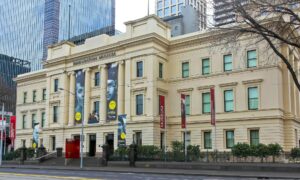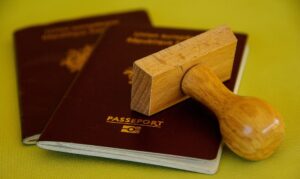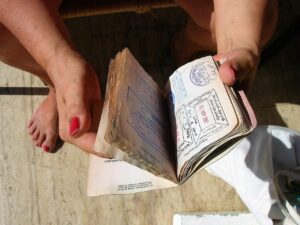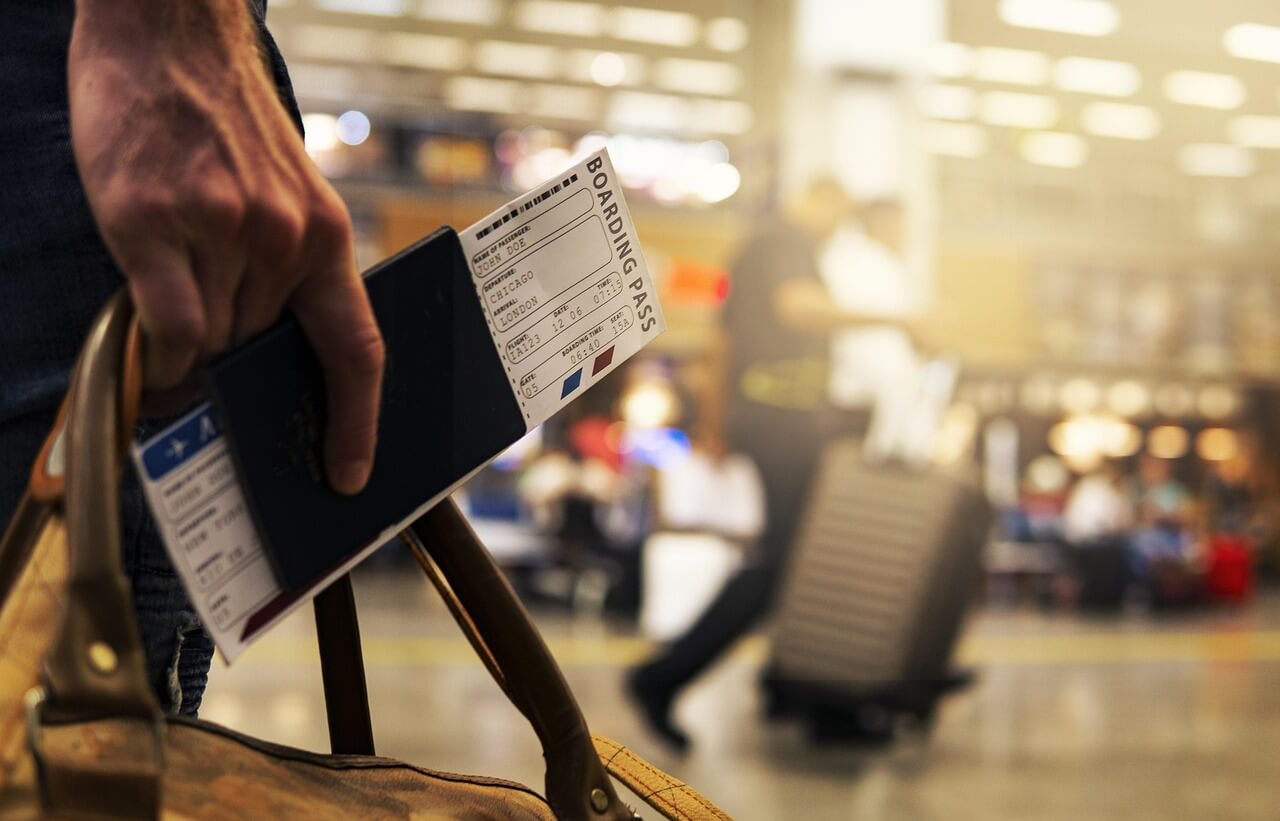Contents
- 1 Introduction
- 2 How does Australia’s immigration system work?
- 3 What are the main visa options for immigration to Australia?
- 4 What are the common challenges in the Australian immigration process?
- 5 Visa Types and Eligibility
- 6 Skilled Migration Visa, and how does it work?
- 7 Get a Permanent Residency (PR) in Australia?
- 8 Skilled Independent Visa (Subclass 189), and how to apply?
- 9 What is a Skilled Nominated Visa (Subclass 190), and how is it different from 189?
- 10 What is Regional Sponsorship Visa (Subclass 491), and what are its benefits?
- 11 What is a Temporary Skill Shortage Visa (Subclass 482), and what is its application process?
- 12 What are the qualifications and application process for a Student Visa (Subclass 500)?
- 13 What are the qualifications for a Partner Visa (Subclass 309/100 and 820/801)?
- 14 What visa options are there for families and children?
- 15 benefits of a Business & Investor Visa?
- 16 Rules to get a Working Holiday Visa?
- 16.1 3. Skill assessment and point test
- 16.2 4. Application Process and Required Documents
- 16.2.1 What is an Expression of Interest (EOI), and how to submit it?
- 16.2.2 What are the conditions for receiving an Invitation to Apply (ITA)?
- 16.2.3 What documents are required for visa application?
- 16.2.4 How to collect a Police Clearance Certificate (PCC)?
- 16.2.5 How do you complete the health examination (Medical Examination)?
- 16.2.6 What is the process of proof of financial capability?
- 16.2.7 How do you make an experience letter and reference letter?
- 16.2.8 What mistakes should be avoided during visa application?
- 16.3 5. Visa processing and appeals
- 17 7. Permanent Residence (PR) and Citizenship
- 17.1 What are the benefits of getting an Australian Permanent Residence (PR)?
- 17.2 What are the steps required to get PR?
- 17.3 What are the conditions for getting citizenship from PR?
- 17.4 Citizenship test (Citizenship Test) How to prepare?
- 17.5 What rights are available after obtaining citizenship?
- 17.6 Difference between Residence and Citizenship? Australian Immigration.
- 17.7 Dual citizenship (Dual Citizenship) is possible?
- 18 8. Australian Immigration Updates and Policies
- 19 9. Tips and advice on immigration
- 19.1 How do you start preparing for immigration?
- 19.2 What are the important tips for a successful immigration application?
- 19.3 How do you prepare financially for the immigration process?
- 19.4 What is the way to mentally prepare?
- 19.5 What should be considered while selecting an immigration agent or consultant?
- 20 10. Misconceptions and realities about immigration
- 21 Conclusion
Introduction
Australia is one of the most popular destinations for people seeking a better quality of life, world-class education, and rewarding job opportunities. Whether you’re planning to migrate as a skilled worker, student, or through family sponsorship, understanding the immigration process is essential. In this guide, we’ll explore everything you need to know about Australian immigration — from visa types and eligibility criteria to the Permanent Residency (PR) process and tips for a successful application. If you’re dreaming of starting a new chapter in Australia, you’re in the right place.
Why is Australian immigration popular?
Explore Australian Immigration—visa options, PR pathways & expert guidance to start your new life in Australia. Begin your journey today! The country’s healthcare, education system, and security system are highly developed, making it an attractive destination for immigrants. In addition, Australia has eased the visa process for skilled workers, further increasing the interest of immigrants.
How does Australia’s immigration system work?
Australia’s immigration system is based on age, education, skills, language, and experience. They are considered eligible for a visa if they achieve a certain score. Australia offers different categories of visas, which are granted based on certain qualifications.
What are the main visa options for immigration to Australia?

There are several popular visa options for immigration to Australia, such as:
- Skilled Migration Visa
- Permanent Residency (PR) Visa
- Student Visa (Subclass 500)
- Partner Visa (Subclass 309/100, 820/801)
- Business and Investor Visas
- Working Holiday Visa (Subclass 417 & 462)
What are the common challenges in the Australian immigration process?
- Strict eligibility criteria
- Long processing time
- High application fee
- Language Proficiency Requirements (IELTS, PTE, etc.)
- Sponsorship or nomination requirements
Visa Types and Eligibility
Skilled Migration Visa, and how does it work?
Skilled Migration Visas are for skilled workers who want to work in occupations that are in demand in the Australian labor market. It is usually points-based and awarded on merit.
Get a Permanent Residency (PR) in Australia?
- Skilled Independent Visa (Subclass 189)
- Skilled Nominated Visa (Subclass 190)
- Regional Sponsorship Visa (Subclass 491)
- Partner or family-sponsored visa
- Business Investor Visa
Skilled Independent Visa (Subclass 189), and how to apply?
Subclass 189 is a points-based visa that can be applied for without requiring a state or sponsor. Score at 65 points to qualify.
What is a Skilled Nominated Visa (Subclass 190), and how is it different from 189?
The Subclass 190 visa requires the applicant to obtain a nomination from a specific state, which is different from the Subclass 189 visa. Five points are available for state nomination.
What is Regional Sponsorship Visa (Subclass 491), and what are its benefits?

Subclass 491 is a regional visa where the applicant has to get a nomination from a specific region or state. It is given for 5 years and can be applied for PR after a specified period.
What is a Temporary Skill Shortage Visa (Subclass 482), and what is its application process?
This visa is for skilled workers who wish to work under the sponsorship of an Australian company for a specified period. Qualifications and experience.
What are the qualifications and application process for a Student Visa (Subclass 500)?
- Must be admitted to an accredited institution in Australia.
- Financial support should be shown.
- English Proficiency Test (IELTS/PTE) required.
- GTE (Genuine Temporary Entrant) statement to be submitted.
What are the qualifications for a Partner Visa (Subclass 309/100 and 820/801)?
Spouses or de facto partners Australian citizens. The applicant has to prove a genuine relationship.
What visa options are there for families and children?
- Child Visa (Subclass 101, 802)
- Orphan Relative Visa (Subclass 117, 837)
- Dependent Child Visa (Subclass 445)
benefits of a Business & Investor Visa?
- Opportunities to start or operate a business in Australia.
- Permanent residency opportunities for investors.
- Chances of getting PR if certain financial contribution is made.
Rules to get a Working Holiday Visa?
- Age should be between 18-30 years.
- Citizen of a certain country.
- Sufficient funds must be available.
- Opportunity to apply for PR by working fixed hours.
Australia Immigration: The Complete Guide
3. Skill assessment and point test
What is skill assessment, and how is it done?

Skills assessment is mandatory before applying for a skilled migration visa to Australia. It is an assessment process where your education, experience, and skills are verified by certain institutions. There are different assessing authorities for different professions, such as:
- ACS (Australian Computer Society) – For IT professionals
- EA (Engineers Australia) – For engineers
- VETASSESS – For General Professionals
Process:
- Apply on the website of the particular assessing authority.
- Upload the required documents.
- Pay certain fees.
- Wait for evaluation (usually takes 8-12 weeks).
What are the rules for skill assessment for different professions?
Each profession has different qualifications and assessment methods. For example:
- IT professionals: Work experience and programming skills are evaluated.
- Engineers: CDR (Competency Demonstration Report) has to be submitted.
- Business people: Proof of educational qualification and work experience is required.
How does the point test system work, and how many points are required?
65 points to apply Australian Skilled Migration Visa.
- Age:25-32 years (30 points), 18-24 years (25 points),
- Educational Qualification: Bachelor (15 points), Masters (20 points)
- Experience: 8+ years (15 points), 3-5 years (5 points),
- English Proficiency: IELTS 8+ (20 points), IELTS 7+ (10 points)
What occupations are included in Australia’s Skilled Occupation List (SOL)?
SOL (Skilled Occupation List) changes every year and mainly includes in-demand occupations. Occupations currently in SOL:
- Information Technology Specialist
- Engineer (Civil, Mechanical, Electrical)
- Nurses and doctors
- Accountant and Finance Expert
What tests are acceptable to prove English language proficiency?
- IELTS: Popular and globally recognized.
- PTE Academic: Computer-based test.
- TOEFL iBT: Online English Proficiency Assessment.
- OET: Special tests for medical professionals.
4. Application Process and Required Documents
What is an Expression of Interest (EOI), and how to submit it?
- On the Immigration website, SkillSelect Submit through the platform.
- Applicant’s points, qualifications, and experience have to be mentioned.
- It is free to submit.
What are the conditions for receiving an Invitation to Apply (ITA)?
At least to get ITA, 65+ points Must be and may be nominated by government or state authorities for certain professions.
What documents are required for visa application?
- passport
- Educational qualification certificate
- Skill Assessment Report
- Experience Certificate
- Certificate of English Proficiency
- PC (Police Clearance Certificate)
- Health examination report
How to collect a Police Clearance Certificate (PCC)?
- It must be taken from the police department of your country.
- It should be in the format specified by the immigration authorities.
How do you complete the health examination (Medical Examination)?
A medical examination must be carried out by a doctor approved by the Australian government.
What is the process of proof of financial capability?
Bank statements, income tax returns, property deeds, etc., have to be submitted.
How do you make an experience letter and reference letter?
- Experience Letter: Company letterhead should contain a detailed job description.
- Reference Letter: This can be taken from a manager or senior officer.
What mistakes should be avoided during visa application?
- Giving wrong information
- Submission of incomplete documents
- Applying without Skill Assessment
5. Visa processing and appeals
What to do if the visa application is rejected?
- Know the reason for rejection.
- Prepare a new application.
- Take the help of an immigration consultant if necessary.
How do we reduce visa processing time?
- Provide correct documents.
- Get medical and police clearance quickly.
What are the options to appeal the immigration process?
If the application is rejected, then the Administrative Appeals Tribunal (AAT) An appeal can be made through this.
Is it necessary to take the help of an immigration agent or consultant?
If you don’t understand the whole process, then MARA (Migration Agents Registration Authority) can take the help of an authorized agent.
How to find a good immigration agent?
- Verify MARA registration।
- See client reviews।
- Make a written agreement।
Australian Immigration: The Complete Guide to PR and Citizenship
7. Permanent Residence (PR) and Citizenship
What are the benefits of getting an Australian Permanent Residence (PR)?
- Free or low-cost health care (Medicare)
- Government education and training facilities
- Access to certain government allowances and pensions
- Five-year re-entry visa
- Eligibility to apply for certain government jobs
What are the steps required to get PR?
- Submission of Expression of Interest (EOI) through the SkillSelect process.
- Accreditation from a specific Skill Assessment Authority.
- Scoring well in English proficiency tests (IELTS, PTE, TOEFL).
- Fulfillment of specified point test conditions.
- Obtaining the Invitation to Apply (ITA) and submitting the required documents.
- Completion of medical examination and police clearance after submitting the visa application.
What are the conditions for getting citizenship from PR?
- Lived in AUS 4 years.
- Must be at least 1 year in PR status.
- Must have basic knowledge of the English language.
- Must pass the citizenship test.
Citizenship test (Citizenship Test) How to prepare?
- Read the study material from the official website.
- Give a mock test.
- Gain knowledge about Australian law and culture.
What rights are available after obtaining citizenship?
- Opportunity to get an Australian passport.
- Enfranchisement.
- Opportunity to apply for government jobs.
Difference between Residence and Citizenship? Australian Immigration.
| the difference | PR | citizenship |
| suffrage | no | there is |
| passport | no | there is |
| Government benefits | limited | full of |
Dual citizenship (Dual Citizenship) is possible?
Australia allows dual citizenship, but you need to check if this is possible according to your home country’s policies.
8. Australian Immigration Updates and Policies
Have there been any recent changes to Australian immigration policy?
Immigration policies may change every year, so check the official website regularly.
How has the Covid-19 situation affected the immigration process?
- Some changes have been made to the Skilled Migration Programme.
- Health checks and quarantine rules have been tightened.
What changes may come to Australian immigration policy in the future?
- A new visa category for skilled workers may be introduced.
- Certain occupations may require higher points.
Where can I find government updates on immigration?
- Australian Government Home Affairs website.
- Government newsletters and press releases.
9. Tips and advice on immigration
How do you start preparing for immigration?
- Develop skills by understanding the needs of specific professions.
- Practice regularly to improve your English skills.
What are the important tips for a successful immigration application?
- Provide appropriate information.
- Prepare the necessary documents in advance.
- Avoid any mistakes while applying for a visa.
How do you prepare financially for the immigration process?
- Create a budget for government fees and other expenses.
- Verify bank statements and financial capability.
What is the way to mentally prepare?
- Be mentally prepared for a long wait.
- Research to adapt to a new environment.
What should be considered while selecting an immigration agent or consultant?
- Select Registered MARA Agent.
- Check reviews and references to avoid scams.
10. Misconceptions and realities about immigration
What are common misconceptions about Australian immigration?
- PR is available only with higher education. (Actually, need experience and skill)
- It is not possible to get a visa if you are weak in English. (Different categories are available)
Is Australia’s immigration process really difficult?
If you prepare properly and fulfill the necessary conditions, it is not difficult.
Is only higher education and experience required to get PR?
No, PR is also available in investor and business categories in some cases.
For what reasons can the visa application be rejected?
- Providing false information.
- Insufficient documents.
- Inadequate English proficiency.
- Insufficient financial evidence.
Tips and advice:
- Documentation: Keep all types of documents (such as passport, birth certificate, educational qualification, experience certificate, English test score, health test report, police clearance certificate, etc.) ready on time.
- English Proficiency: Prepare well for the IELTS or PTE exam. More points you get.
- Points Calculation: Understand the points test system and calculate points according to your merit.
- Selection of agents: If taking an agent, select the MARA (Migration Agents Registration Authority) registered agent.
- Updated information: The Australian Immigration Department website (https://immi.homeaffairs.gov.au) collects regularly updated information from
Conclusion
Having the right information and preparation about the immigration process in Australia makes it easy. Apply with proper planning and research and seek professional advice if necessary.
✅ Australian Immigration: Free Help & Guide
✔️ Any questions about immigration to Australia? We are ready to provide free assistance!
✔️ Assistance in filling out the visa application form
✔️ PR and Citizenship Eligibility Verification
✔️ Free consultation to understand the immigration process
✔️ Guidelines for documentation and required documents
✔️ Share immigration policies and latest updates
✔️ What to do if the visa is rejected? Free Consultation
✔️ Explaining what to do to work and live in Australia
📧 Contact us: info@haleboop.com
We are on your side! 🚀
dipukumer

1 thought on “Australian Immigration Guide: Visa, PR & Requirements”